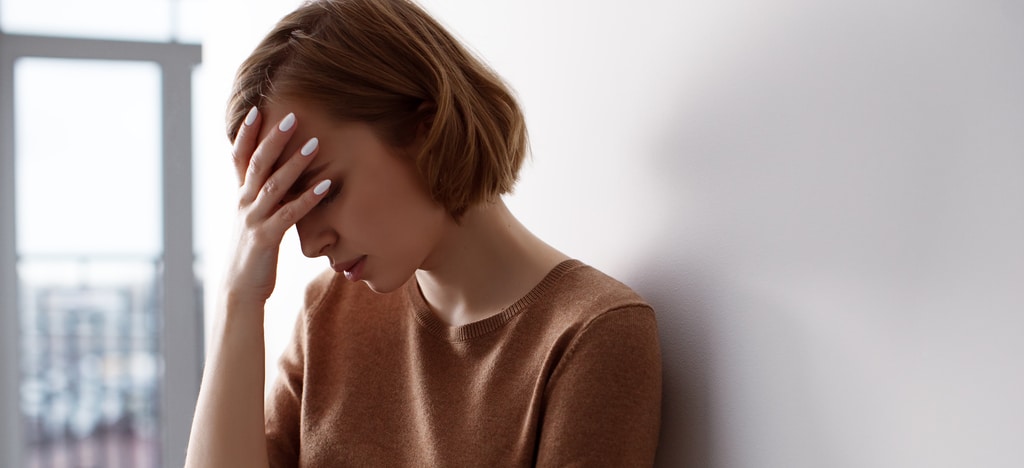Within just a few weeks, a virus has swept across the globe, temporarily changing the way we all live our lives. Travel plans have been cancelled, parents are suddenly juggling their children’s distance learning with their own working from home, and securing an online shopping order is now something to be celebrated.
At times, we have no doubt felt we are living in a movie. We are inundated with images of panic buying, exponential grafts depicting rising cases of Covid-19 and descriptions of the challenges faced by loved ones under lock down back home. Feelings of fear and anxiety soon become normal during the uncertainty of a pandemic.
For people with underlying anxiety, the current rapidly changing situation can exacerbate symptoms, and for those who have not experienced anxiety before, symptoms can soon start to appear. It is important to remember during these unusual times that reacting from a place of panic and fear is unhelpful in the long term. More importantly, looking after our wellbeing to reduce anxiety allows us to take effective actions to safeguard our mental health.
What is anxiety? How does it present itself?
An anxiety disorder occurs when worries and fears become persistent or excessive enough to affect every day functioning. The psychological symptoms of anxiety include restlessness, irritability, poor concentration and excessive fear such as thoughts of death or losing control. You may feel constantly on edge or have a persistent feeling of dread. You may worry about several things at once, with thoughts jumping from one problem to another. Or you may become preoccupied with one particular worry. The worry may become out of proportion to the situation and cause you to avoid certain things that may make you feel anxious.
Some people experience depersonalisation whereby you feel you are not connected to your own body, rather you are watching someone else. Derealisation is equally distressing and is the feeling that the world around you isn’t real. Some describe this as feeling they are in a dream like state.
Anxiety can cause numerous physical symptoms too, such as dizziness, pins and needles, headaches, back pain, fast breathing, chest or neck tightness, sweating, a thumping heart, insomnia, teeth grinding, nausea, frequent urination, lack of libido and diarrhoea.
There are many conditions which fall under the umbrella of anxiety. These include:
- Agoraphobia – A Greek term, which literally translates into “fear of the market place”. This is excessive panic in public places or unfamiliar situations.
- Social Phobia– Avoidance of social interactions due to fear of negative observations from others
- Specific phobias– The most common ones relate to animals, such as a fear of spiders. Many people have also developed a fear of flying or visiting the dentist.
- Panic disorder– short sudden bursts of anxiety that are unpredictable and occur without any external stimulus, causing extreme physical symptoms such as shaking and sweating.
- Obsessive-Compulsive Disorder– repetitive unpleasant thoughts or images that cannot be controlled (e.g. thoughts of being contaminated, or images of violence) This then leads to certain behaviours to try to relieve the mental stress, such as checking things excessively, (have you locked the door), or ritual behaviours such as repeated hand washing, tapping or counting.
- Post-traumatic stress disorder (PTSD)– This can occur after going through something you found very traumatic. It can cause anxiety, flashbacks and nightmares. You may try to avoid certain places or objects that could trigger the flashbacks.
- Health anxiety– sometimes anxiety causes people to excessively check their symptoms and worry they have severe physical conditions. It is related to OCD and can cause great distress.
- Perinatal anxiety or perinatal OCD – some women develop anxiety problems during pregnancy or in the first year after giving birth.
How common is anxiety?
Anxiety is the most common mental health illness. Globally, it is estimated that 7% of the population are suffering from an anxiety disorder at any given time, which equates to 284 million people around the world. According to epidemiological surveys, one third of the population is affected by an anxiety disorder during their lifetime. Although anxiety is very common, it is understood that only a third of people receive treatment. Anxiety is increasingly being recognised in children, with American studies showing 25.1% of children between 13 and 18 display signs and symptoms of anxiety.
Is there a demographic that is more susceptible?
Anxiety is more common in women than men, and the prevalence is highest in 35 to 59-year olds. There does not appear to be any racial difference in anxiety rates, although it is more common in urban areas.
Are there any factors that make one more likely to have anxiety?
Research shows that having a close relative with anxiety problems increases your chances of experiencing anxiety problems yourself. However, we are yet to understand if this is directly as a result of genetics, or if we develop certain ways of thinking and behaving from our family when growing up with them.
Difficult experiences in the past, including childhood, can trigger anxiety in later life. Having parents who don’t treat you warmly, are overprotective or are emotionally inconsistent can also be a factor.
Other recognised triggers for anxiety include problems in your personal life such as losing your job, or financial worries, and being diagnosed with a serious physical problem or long-term health condition. Anxiety can be exacerbated by excessive alcohol, caffeine, sugar and some medications for other physical complaints.
If a patient suffers from anxiety, are they more likely to have other mental health challenges?
Patients often have a combination of various anxiety disorders. When anxiety is not managed, it can start to cause feelings of depression, such as low mood and not enjoying things as much as in the past. There is also a higher prevalence of alcohol and substance misuse.
What is the treatment?
Living with anxiety can be very challenging, but there are several options available for treatment. The important thing is to find what works best for you as everyone is different.
Firstly, self-care:
- Talk to someone you trust- a family member, old friend or GP. Sometimes just being heard can help process your feelings and formulate a plan for recovery.
- Write down your worries. Better still, separate them into the things you can change and those you have no control over. Writing a journal can also be useful.
- Maintain your physical health- try to prioritise sleep, healthy eating and exercise.
- Breathing exercises, progressive muscular relaxation, mindfulness and meditation can help calm the mind and distract from the worries.
- Some people benefit from complimentary therapies, such as yoga, reflexology, aromatherapy and massage.
Talking therapies
If you have ongoing symptoms despite self help therapies, the next step is to try counselling. CBT is proven to help with all forms of anxiety and is based on recognising your worrying thoughts and the behaviour this causes, and then working on coping strategies to overcome such anxiety. CBT can be done with a counsellor, online or even with a self-help book. What works for you is very individual. What is important is not to be disheartened if the treatment does not work, but to try another approach.
Medication
Your doctor may recommend medication to help manage your anxiety, either in conjunction with talking therapy, or if counselling has not completely resolved the symptoms. Betablockers can be used to help with the physical symptoms of panic such as a racing heart, sweating and tremors. Antidepressants are often prescribed for many anxiety disorders. Antidepressants are not addictive but may take a few weeks before they become effective. You normally start with a low dose and consult with your GP over time to find the optimum dose for you.
Last comments
During these challenging times, the need to manage our anxiety has never been greater. Use the time at home positively to improve your self-care and keep to a routine. Start a new exercise regime, reignite any creative hobbies, learn a new skill or language to help distract your thoughts. Stay connected with loved ones, and take the opportunity to reconnect with old friends. Limit your media consumption to a certain time frame each day or a certain number of articles.
What works for you is very individual. What is important is not to be disheartened if one approach does not work, but try another treatment. In doing so, you will equip yourself with the skills to improve your mental health not only during this period of pandemic but throughout your life, long after this virus has passed.


































